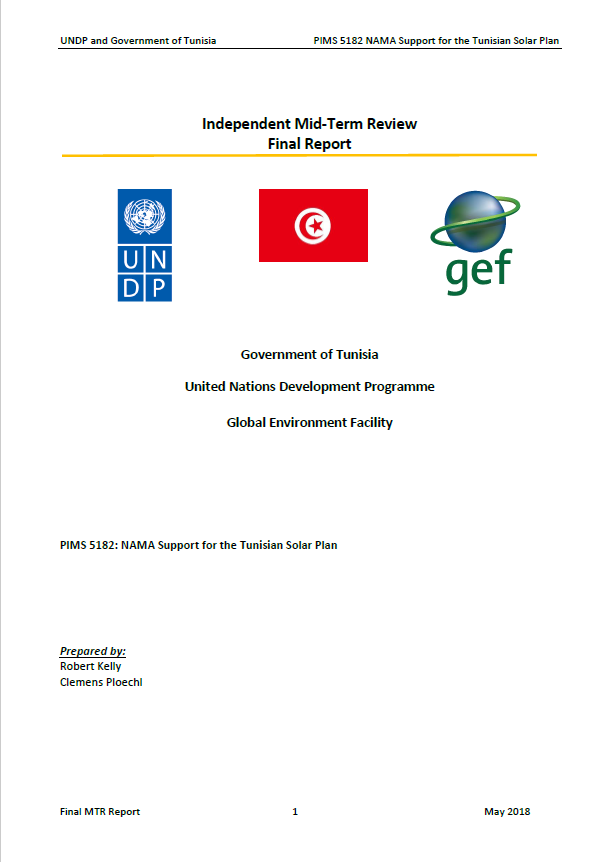
Évaluation à mi-parcours - Appui au NAMA PST
CONCISE SUMMARY OF CONCLUSIONS
• The problems to be addressed by the Project’s underlying assumptions and theory of change are clearly described in the Project document.
• High-level political commitment to the Tunisian Solar Plan, and to renewable energy more broadly, is demonstrated by the relevant stakeholders. The Project addresses country priorities, creates country ownership and is generally in line with national sector development priorities and development plans. Nonetheless, there is an apparent disconnect between the clear national support directed towards the TSP and the level of Government support directed towards the Project specifically: the Project is undoubtedly helpful to the Government but it has not yet established itself as the key instrument for channelling and/or augmenting Government support to the TSP.
• The Project’s objectives and outcomes or components are clear and practical but are not always logically linked with each other.
• While the Project’s underlying assumptions are still correct during project implementation (the support of the Government for the renewable energy agenda is demonstrated by legislative advancements, STEG is currently investing in the 10 MW Tozeur PV project as outlined in the Project document, etc.), there have been three major changes in the project environment which will affect the results as outlined in the Project document: i. the concept of NAMAs is not formally recognized in the Paris Agreement, ii. evolution of the national sustainable energy framework, and iii. technological progress relating to renewable energy under desert conditions.
• The Project is making progress in the sense that most of the expected outputs are being generated. However, a number of outputs have been delivered by external third parties (with and without support from other donors) without the direct involvement of the Project: e.g. modalities for public-private partnerships (PPPs) were established on 27th November 2015 with a by-law on contracts for PPPs and ordinances have been issued outlining rules on grid access.
• The current Project management is following rules and procedures on work planning, monitoring, reporting and reviewing (administrative, financial etc.) but is not ambitious in relation to adapting Project strategy, identifying opportunities for the Project (of which there are many) or communicating results.
• Sustainability appears to be likely since the overall enabling policy environment for renewable energy in Tunisia is evolving rapidly and all relevant stakeholders are determined to create a successful sustainable energy market.
Output 2.5.1 Solutions developed, financed and applied at scale for energy efficiency and transformation to clean energy and zero-carbon development, for poverty eradication and structural transformation
Goal 7. Ensure access to affordable, reliable, sustainable and modern energy for all
7.1 By 2030, ensure universal access to affordable, reliable and modern energy services
7.2 By 2030, increase substantially the share of renewable energy in the global energy mix
7.3 By 2030, double the global rate of improvement in energy efficiency
1: Others
2: Poverty


